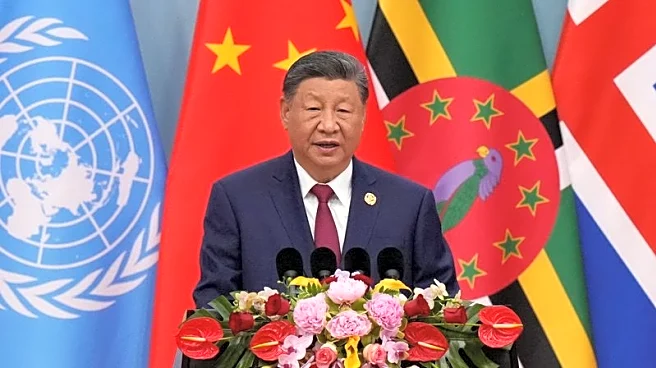BEIJING/HONG KONG (Reuters) -Chinese President Xi Jinping on Monday called for greater representation for women in politics and government at a global women's summit in Beijing, a move he said would ensure
that gender equality is "truly internalised" within society.
The two-day "Global leaders meeting on women", held in conjunction with UN Women, seeks to further advance women's development globally, gender equality and the well-rounded development of women, authorities said.
Leaders from Iceland, Sri Lanka, Ghana, Dominica and Mozambique are attending, state media reported.
Xi said that countries needed to "broaden channels for women to participate in political and decision-making, and promote women's broad participation in national and social governance."
Peace and stability are prerequisites for women's all-round development, Xi said.
The summit comes as China has made great strides in educating women, who account for around 50% of students in higher education and around 43% of the total employed population.
However, the lack of senior female politicians appears to be at odds with a broad push by the Communist Party to increase female representation.
An absence of women among China's top leadership is concerning, the United Nations said in 2023, as it recommended China adopt statutory quotas and a gender parity system to quicken equal representation of women in government.
In 2022, China for the first time in 20 years did not have a woman among the 24 members of the country's politburo and no women among the seven members of the standing committee of the politburo.
Xi's decade as the party's general secretary has seen the number of women in politics and elite government roles decline and gender gaps in the workforce widen, academics and activists say.
Xi said in 2023 that women have a critical role and must establish a "new trend of family", as the nation grapples with an ageing population and record decline in the birth rate.
Doing a good job in women's work is not only related to women's own development but also related to "family harmony, social harmony, national development and national progress," he said.
(Reporting by Xiaoyu Yin in Beijing and Farah Master in Hong Kong)









